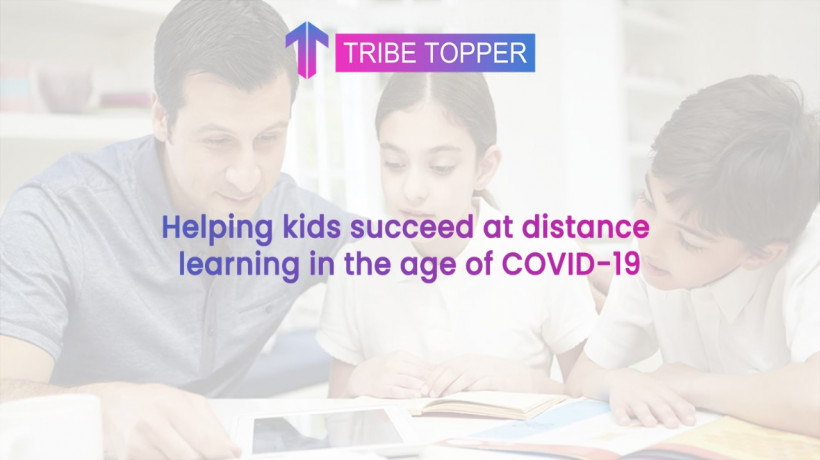Helping kids succeed at distance learning in the age of COVID19
Students have been facing persistent difficulties since the implementation of COVID-19. Parents nowadays have a lot on their plates between juggling job and family responsibilities, communicating with their children's instructors without ever seeing them
September 20, 2022
Educationist & Blogger

To be successful, distance learning requires the participation of many people, including instructors, students, and parents. The success of our children in remote education depends on our giving them our attention and comfort.
One way to ease their minds is by giving them access to excellent study materials or IB resources like those offered by the website Tribe Topper, which is regarded as one of the finest IB has to offer.
There are important things that adults may do to assist children as they learn to use distance learning effectively.
Supervision
Keep a watch on your kids when they are completing their online studies.
Younger students require a specialized timepiece since they aren't yet at the stage when they need to log in and out of courses, remember passwords, and adjust the camera to point directly at them rather than at their cat or dog. If they want help with technology or online education, their parents must be there to provide it.
Young children do not need supervision until high school, but parents should keep an eye on them. It would be best if you didn't treat them with kid-like carelessness and leniency.
When the children are grown, the mood of the parents often improves. Teenagers are old enough to grasp their responsibilities and are computer literate. However, it would be best if you kept an eye on them since they are terrible at keeping track of time. They may need additional encouragement to do things like get up early enough to log in for an online class.
Teens can take a break from their screens if they feel too sleepy to pay attention in class. Parents must monitor their actions to prevent kids from being careless.
Keep a schedule.
Juniors and teenagers can benefit from sticking to a routine that allows them to balance their time effectively between schoolwork and extracurricular activities.
The best way to help kids of all ages manage their time is to set reasonable goals and clear expectations. They must schedule their studies, work, and food breaks accordingly.
Take a little pause to eat some snacks and unwind to some music in the middle of your online lessons. Plan so that all of your top concerns can be met relatively quickly.
Teachers may do their part in making the classroom a welcoming place by starting each day with a message to students. Teachers would greatly favor their pupils if they put up daily study schedules first thing in the morning.
It's important to remember that the structure we study online will vary from the one we use in a traditional classroom. So that students don't miss out on anything, professors should give recordings of courses and be open to alternative scheduling arrangements.
Make it an enjoyable experience.
In the same way that setting aside time to study is crucial, so too can engaging in fun activities that facilitate learning. A parent's assistance during homework time may turn it from a dreaded chore into a fun and productive time for their child to learn.
Pretend play is a popular activity for children of preschool age and younger. Parents may adapt the games to make education more enjoyable.
The older ones are at the stage of life when they want to intellectually be just like their peers. As a result, instruct students to poll their social circles on how they use their spare time and what kinds of things attract them. The students are encouraged to fill their leisure time with their peers. This motivates individuals to push themselves and compete with others.
Our adolescent children have new opportunities for learning and application. As a result, they can put their theoretical understanding into practice. For example, holding an online group conversation about the current issue, giving their perspectives on specific choices, doing critical thinking about the challenges, etc., can help students think and explore their learning.
It's okay to seek assistance.
You should seek help if your child is having difficulty in online learning. Teachers are always there to lend an ear, and sites like Tribe Topper provide comprehensive but user-friendly materials to help students pass the rigorous IB program with relative ease.

